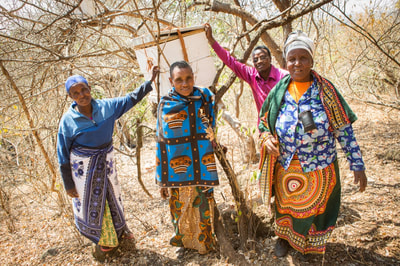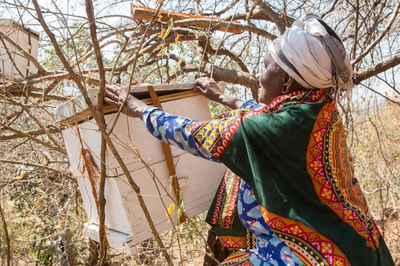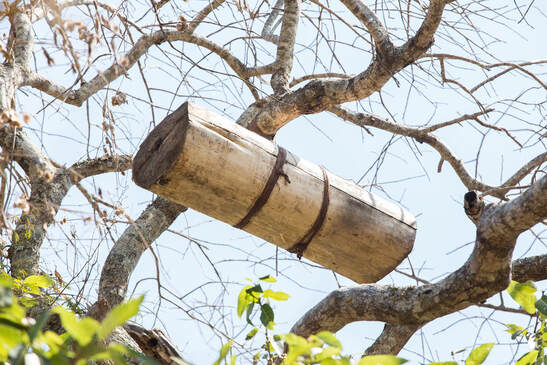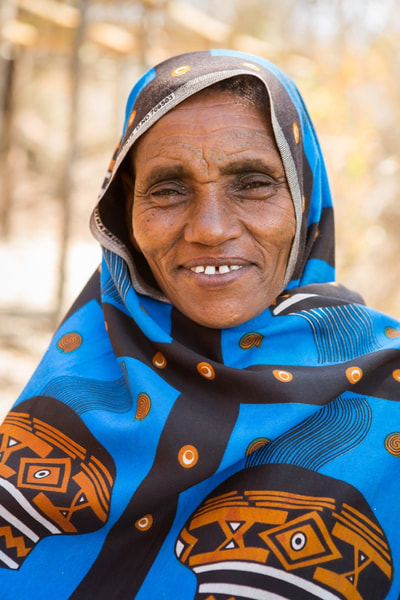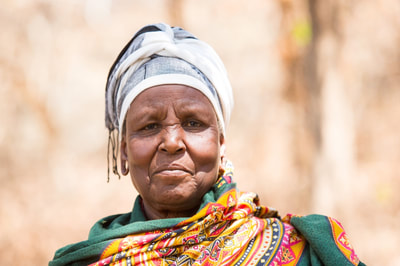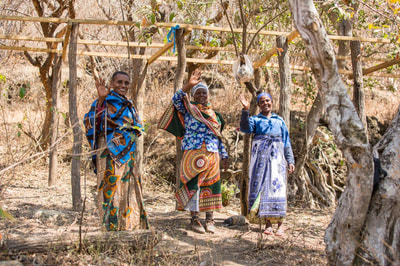Meet ‘Mama Nyuki’ - The new women’s honey collective in Hanang
We began with 35 traditional style hives in the trees. That is the only way we knew how to produce honey. When UCRT and Oxfam saw how all the women in our community were working together, they saw our potential and helped us by investing financially and with new modern-style hives” - Agnes |
Agnes, Maria and Mary-Francis are the three nominated leaders of a 50-strong women’s group using modern techniques and enterprising spirit to produce a record yield of honey in Hanang, thanks to a little help from Oxfam.
As Datoga women, honey has always been an important part of their families’ diet. It features strongly in traditional recipes and provides energy and reward to keep their many children well-behaved on even the longest days. What began as a local shared project to produce honey for their own village quickly became an entrepreneurial venture, as a UCRT and Oxfam partnership saw the women's effort and potential. |
